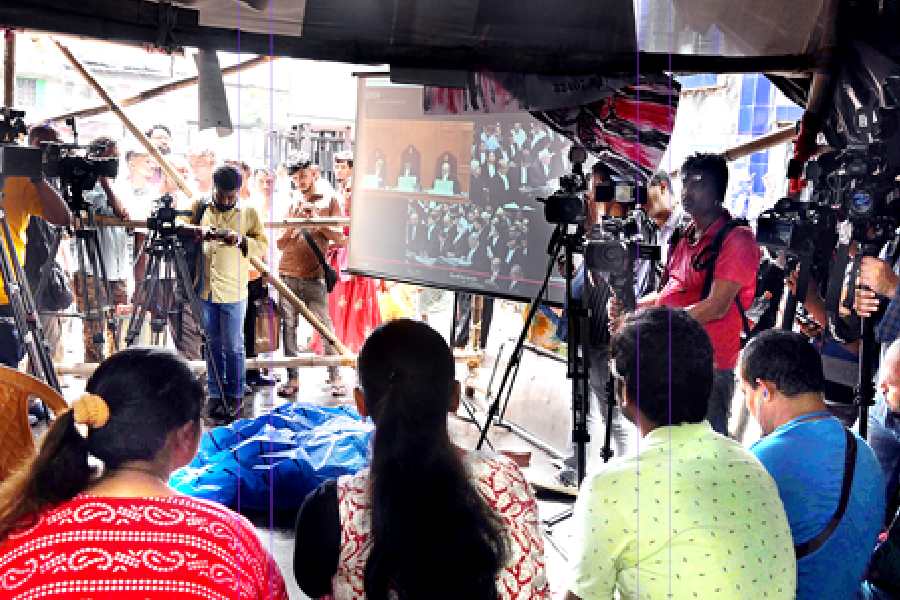The city police had drawn up a “requisition”, instead of a “challan”, before handing over the body of the RG Kar rape-and-murder victim for a post-mortem on August 9, in keeping with their practice, an assistant commissioner of the force said on Monday.
The requisition contained all the details that are mentioned in a challan, including the name, age and address of the deceased and a brief description of how the body was found.
A copy of the inquest report of the victim, who was a junior doctor, was attached with the requisition. It was handed to the head of the forensic medicine department of RG Kar Medical College and Hospital in keeping with the norms laid down in the Police Regulations, Calcutta (PRC), said members of the special investigation team of Kolkata Police that conducted the probe till Calcutta High Court handed it to the CBI.
The junior doctor’s post-mortem report quotes the inquest number, they said.
The Supreme Court on Monday expressed concern over the post-mortem report of the RG Kar victim not mentioning the challan.
“In Calcutta, the police use something known as ‘requisition’, instead of a challan.
It contains all the details that a challan is meant to bear and, at times, more. For instance, the requisition in the RG Kar case had an appeal to set up a board of experts to conduct the post-mortem. It had also asked for the entire post-mortem to be videographed,” a senior officer and a member of the SIT told this newspaper.
“The requisition, according to the practice followed by Kolkata Police, is always handed to the head of the department of forensic medicine of the hospital concerned, instead of the doctor who will perform the post-mortem,” the officer said.
Uday Shankar Chattopadhyay, a lawyer who has been practising at Calcutta High Court for over two decades, said: “In Calcutta, the police submit a ‘requisition’ instead of a challan for a post-mortem. This has been the practice for decades.”
Several other senior advocates echoed him and also said there had never been “an issue” with this process.
“What matters is whether a dead body was sent for a post-mortem following all the laid-down norms with all the details of the deceased spelt out clearly,” said Sekhar Basu, a senior advocate at the high court.
“There has never been any debate over this distinction between a challan and a
requisition.”
A senior police officer said a request to conduct a post-mortem is usually made in a challan in the districts, where the process is carried out in a sub-divisional hospital where there’s a chance of bodies getting mixed up.
“The police usually travel by bus or some other vehicle to the sub-divisional
hospital, which may be several kilometres from the police station, and produce a challan for the post-mortem. The body of the deceased reaches the hospital in a van hours later,” said a retired IPS officer who has served in top positions.
Senior Kolkata Police officers said a “requisition” is used instead of a challan because there is a morgue within 2km of all police stations in the city police area.
“Unlike the districts, there is a scant chance of bodies getting misplaced or wrongly identified before the post-mortem in Calcutta,” an officer said. “The CBI is also aware of this accepted practice.”
Some members of the special investigation team that probed the rape and murder said a duplicate copy of the “requisition” was retained by the investigating officer of the case and later tagged to the case diary.
“There is no chance of the police not following the step of filing a requisition or a challan for a post-mortem. During the trial, the investigating officer has to mention in the court that the post-mortem was carried out based on a requisition sent by him. That is mandatory,” a senior officer who was part of the special investigation team said.
The “requisition” that was sent for post-mortem by Kolkata Police on August 9 named an assistant sub-inspector who would identify the junior doctor.











